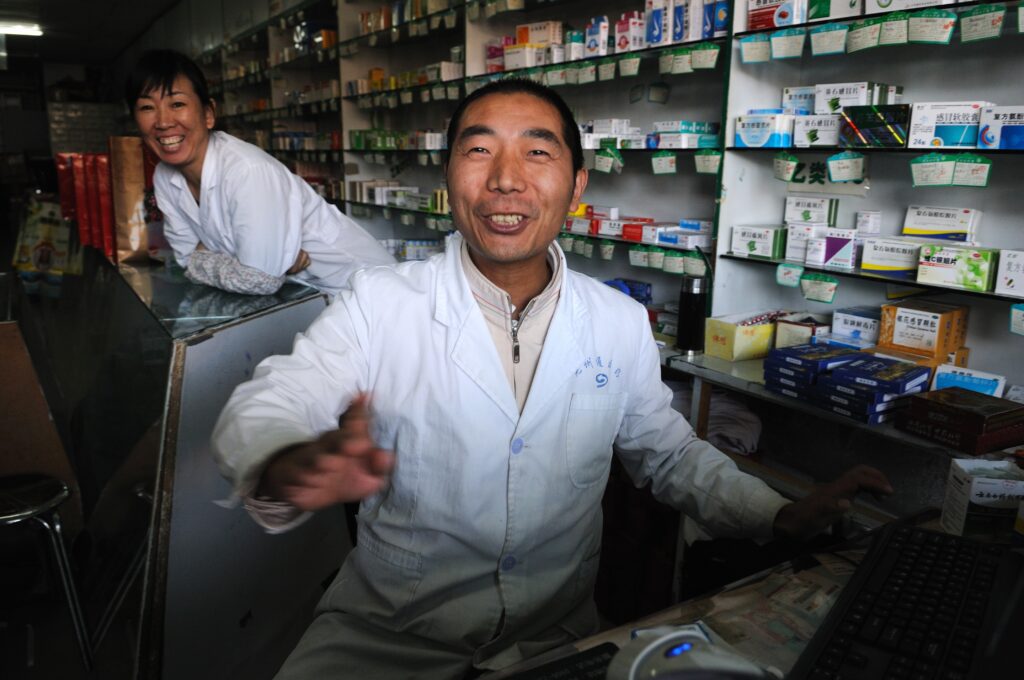Counterfeit and substandard medicine trafficking is one of the world’s fastest-growing and highest-value criminal enterprises. Analysts estimate the global counterfeit market to be worth between US$200 and $432 billion.

Since the issue first came to light in a 2003 study revealing that up to 70% of randomly tested medicines in Nigeria were substandard or falsified, much progress has been made in regulatory oversight and registration processes. However, the World Health Organization (WHO) estimates that up to 10% of drugs currently available worldwide are substandard, with this figure rising significantly in low- and- middle-income nations (LMICs). The consequences are severe, ranging from ineffective treatment to harmful side effects and, tragically, loss of lives.
Defining Counterfeit and Substandard Medicines:
- Counterfeit medicines are fake drugs deliberately made by an unknown manufacturer to deceive consumers by imitating legitimate pharmaceutical products. They may contain incorrect dosages, ineffective or wrong ingredients, or even toxic substances.
- Substandard medicines are produced by a known manufacturer yet do not meet the quality standards of the drug regulator. The WHO identifies both problems as a global issue but notes that they disproportionately affect LMICs where regulatory oversight may be weaker, making it easier for substandard medicines to infiltrate the market via illegal street markets, websites, legitimate pharmacies, clinics, and hospitals.
Consequences:
The consequences of counterfeit and substandard medicines are far-reaching and devastating. Patients relying on these fake medicines may experience treatment failure, worsening health conditions, and the development of drug resistance. This significantly undermines the confidence of the population in modern science-based healthcare. Moreover, these substandard medications contribute to the global burden of disease and undermine efforts to control and eradicate various health conditions. The economic toll is also significant, as wasted resources are diverted towards ineffective treatments, and healthcare systems bear the burden of increased morbidity and mortality.
NCDconnect – a consolidated buying platform for Noncommunicable Diseases (NCD) medications that eliminates uncertainty
Through the new NCDconnect platform, IDA Foundation and Solvoz have partnered with the shared aim of facilitating the procurement of high-quality NCD medicines and medical devices. It is a single-source platform for all NCD medical demands that guarantees quality while generating simplicity, trust, and affordability for our buyers.
How do we at IDA Foundation ensure the quality of medicines and medical supplies?
- Supply Chain Transparency: Ensuring the integrity of the pharmaceutical supply chain is a cornerstone of IDA Foundation’s strategy. IDA Foundation works closely with manufacturers who share its commitment to quality, transparency, and ethical practices. Rigorous supplier audits are conducted to assess manufacturing facilities and processes, ensuring all factories follow GMP before partnering with suppliers.
- Stringent Quality Control: All products are either: WHO-prequalified, SRA-approved, or IDA Quality Assured. For the latter, IDA foundation conducts thorough dossier reviews of every product before it enters the catalogue. It also employs a review of each procured batch and risk-based testing of selected batches to verify the authenticity, purity, and potency of the distributed medicines. This meticulous approach helps identify and eliminate any substandard products before they reach the end-user.
- Continuous Monitoring and Improvement: Any deviations from quality standards are promptly addressed, and lessons learned are used to enhance and refine existing processes. This commitment to continuous improvement ensures that IDA Foundation stays ahead of emerging threats and challenges.
The prevalence of substandard medicines in low and middle-income countries is a pressing global health issue that demands immediate and sustained attention. IDA Foundation has a 50-year track record of delivering high-quality essential medicines and—through NCDconnect—is expanding into NCDs to align with the market demands and meet the priorities of our partners. In a world where access to safe and effective medicines is a fundamental right, IDA Foundation remains committed to eliminating substandard medicines in global supply chains. Learn more about IDA’s Quality Assurance here.
Will you join us in improving healthcare access?
Access NCDconnect, spread awareness, and let’s take a big step towards making high-quality NCD treatment accessible to everyone.
For inquiries and to explore potential partnerships, feel free to reach out to us at ncd@idafoundation.org.
And to stay informed on the latest updates and news from NCDconnect, follow us on LinkedIn or access the NCDconnect platform.

